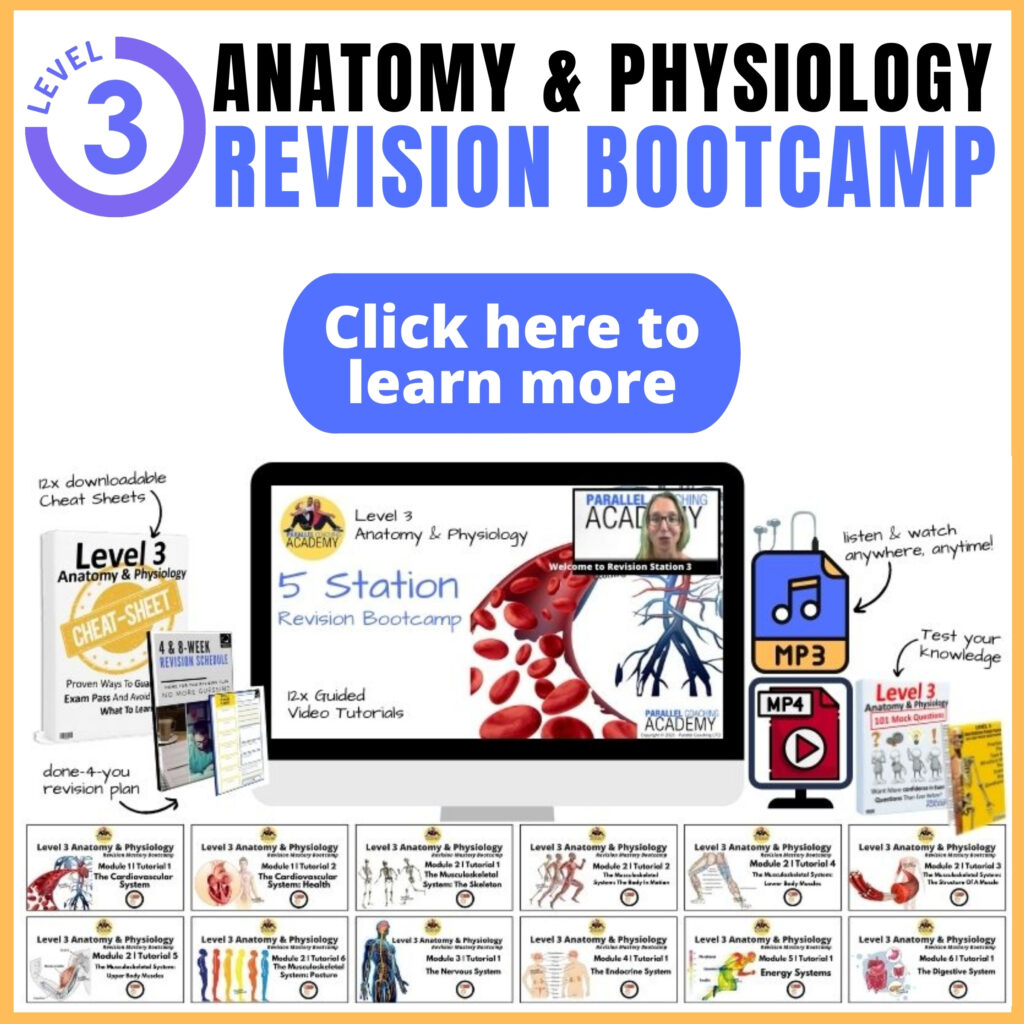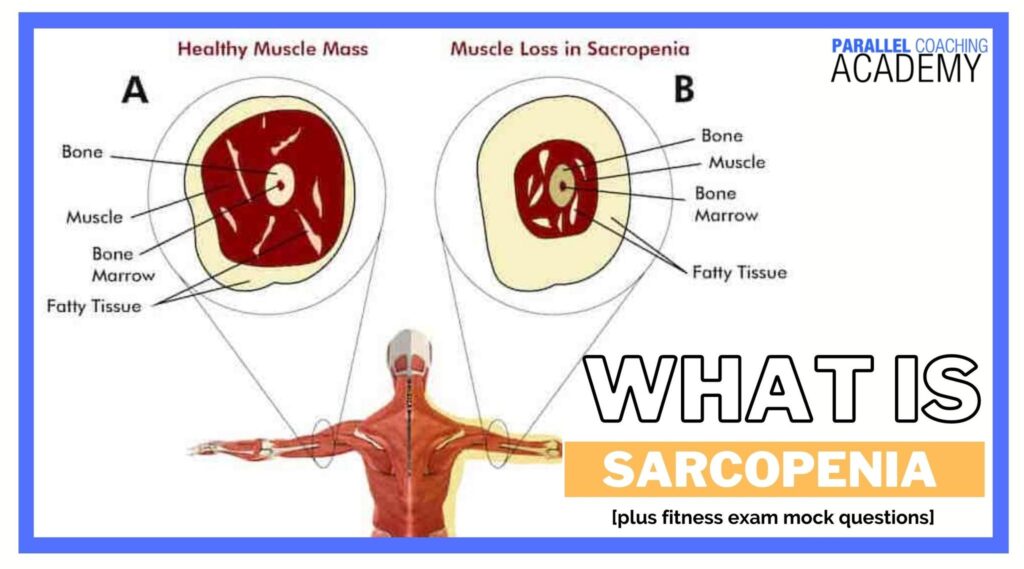As part of your Level 2 and 3 Anatomy Exam, you need to understand that Sarcopenia is normal muscle loss associated with aging.
Today’s blog will explore the effects of aging, what is sarcopenia, and the symptoms associated with muscle loss with aging.
At the bottom of this blog, you’ll also find three mock questions to test your knowledge
Watch the 9 minute video about Sarcopenia:
The effects of aging
There are many physiological changes that occur naturally as we age, here are just a few that affect our musculoskeletal system:
- Reduced bone density and increased osteopenia and osteoporosis
- Increased stiffness in tendons as a result of reduced water content
- Reduced joint motion and flexibility
- Impaired cushioning through load-bearing joints, with more wear and tear on the cartilage.
- A reduction in the number and size of muscle fibres
- and Sarcopenia
Let’s focus more on the latter of these…
What is Sarcopenia?
Sarcopenia is defined as the age-related loss in skeletal muscle mass. This is considered to be a normal part of the aging process.
This deterioration begins at around 30 years of age.
Before we reach our 30th birthday (give or take a few years), we are building or maintaining muscle mass. It is expected that inactive people could lose between 3 and 5% of their muscle mass per decade.
By the time we reach our senior years, at approximately 75 years old, the process of sarcopenia escalates much faster, and deterioration of muscle mass becomes more evident.
Causes and Symptoms of Sarcopenia
There are many symptoms associated with sarcopenia, most of which also coincides with the normal physiology of aging. These compound the effects of sarcopenia which create a loss of function and mobility as we age:
There is a loss of muscular endurance, making it harder to maintain activity for long durations.
A reduction in nerve cells, which affects coordination, motor control, and recruitment of muscle fibers.
Lower hormones, in particular growth hormone and testosterone. Both of these hormones are associated with the growth and development of muscle mass, so a reduction in hormonal levels as we age will affect the maintenance of muscle mass.
There is also a reduced intake of total calories and protein as we age, which causes weight loss via an overall deficit of calories and reduced ability to maintain muscle mass.
This could also be a result of reduced function and ability to cook for themselves or prepare food as we get older. Impaired mouth health and false teeth also limit the food choices, and enjoyment of food which compounds the lower-calorie diet as we age.
How to improve Sarcopenia?
Although sarcopenia is a normal deterioration of muscle mass due to aging, studies show that the severity of sarcopenia can be reduced with lifestyle behaviors. These include:
- Regular resistance training to mitigate muscle mass loss ( a minimum of 2-3 times per week)
- Consuming a healthy balanced diet with the appropriate amount of calories to maintain weight
- Being aware of muscle health from our 30th year onwards
Test your knowledge with more mock questions:
[NOTE: The answers are below the 3rd questions]
Q1: What is the name given to muscle loss associated with aging?
A. Sarcomere
B. Sarcopenia
C. Osteopenia
D. Osteoporosis
Q2: What physiological changes occur as a result of aging?
A. Improved coordination
B. Increased bone density
C. Reduced joint motion
D. Increased flexibility of tendons
Q3: What lifestyle behaviours reduce the effect of sarcopenia when we age?
A. Less exercise
B. Reduced calorie intake
C. More cardiovascualr training
D. Regular resistance training
Answers to the mock questions are :
Question 1= B, Question 2 = C, Question 3 = D
If you want more mock questions like this, then you can download more Free Mock Questions: DOWNLOAD NOW
Need More Help with your Level 3 Anatomy Revision?
For Trainee FITPROS Taking Their L3 Anatomy & Physiology Exam.
Learn, Revise & Pass Your Level 3 Anatomy & Physiology Exam In Under 10-hours
(Without Having To Spend Hours Revising Or Feeling Overwhelmed)
If you want to get your revision structured, learn everything you need to know and feel confident on exam day, then click the link below:

Dedicated to More
Hayley “What is Sarcopenia?” Bergman
Parallel Coaching
P.S. You can also find us on the following platforms:
Instagram: Follow Now
Facebook: Like Our Page
Twitter: Tweet Us
YouTube: Subscribe Here
More Muscles Blogs: HERE

